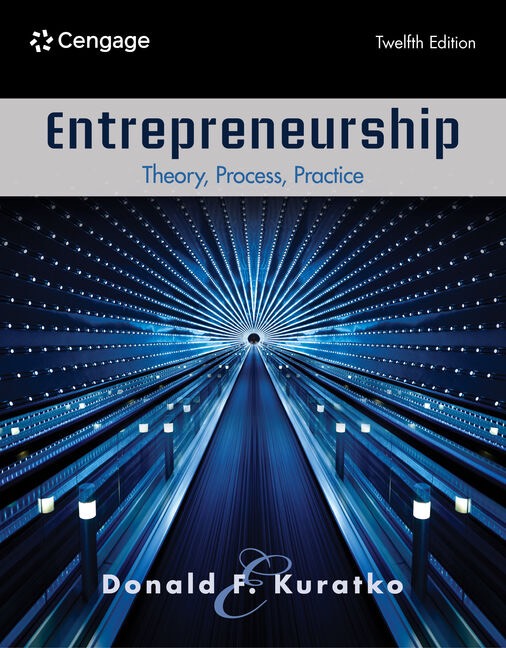CM2008 Entrepreneurship in Technology and Health 7.5 credits

This course will provide students with key concepts and methods for developing entrepreneurial skills in the field of health and medical technology. Innovative technologies for health and well-being need to be customer-centric and commercialised to reach the market.
How can a prototype of innovative technology be developed for a successful business plan? How can we commerialise our business ideas to a successful product or service?
The course content is divided into three sections:
- Marketing and consumer behaviour
- Business and innovation and
- Sustainable development of innovative technologies
Students will learn key concepts of consumer behaviour and culture, market and need analysis, competitor and distribution analysis, pricing and sustainable development. Students will learn how to apply business models and commercialisation strategies, conduct alpha-beta pilot tests and develop a financial plan.
The course provides conceptual aspects to entrepreneurship in the organisational contexts and in digital platforms, and regulatory aspects to innovative technologies such as sustainable development, basic intellectual property rights and procurement policy.
As a final assignment, student will develop their own business plan for an innovative technology for health and well-being.
Information per course offering
Information for Autumn 2025 Start 25 Aug 2025 programme students
- Course location
KTH Flemingsberg
- Duration
- 25 Aug 2025 - 24 Oct 2025
- Periods
Autumn 2025: P1 (7.5 hp)
- Pace of study
50%
- Application code
50734
- Form of study
Normal Daytime
- Language of instruction
English
- Course memo
- Course memo is not published
- Number of places
Places are not limited
- Target group
- No information inserted
- Planned modular schedule
- No information inserted
- Schedule
Contact
Course syllabus as PDF
Please note: all information from the Course syllabus is available on this page in an accessible format.
Course syllabus CM2008 (Autumn 2024–)Content and learning outcomes
Course disposition
Course contents
• Innovation
Alpha-Beta-Pilot test
• Marketing
Needs Analysis
Distribution Solution
Competition Analysis
Pricing
Sustainable development
• Business
Business models and commercialization
Strategy and business logic
• Entrepreneurship leadership and organization
Interaction between key players
Organizational dynamics
Set Objectives and Key results
• Regulations
Basic intellectual property rights
Procurement Policy
Sustainable development
Lectures, exercises and seminar.
• RED1 - Individually short paper, analyzes and class discussions
• RED2 - Oral and written presentation of the business concept for peer review
• PRO2 - Continuous sprints with agile project methodology, develop a business plan presented to the class and external stakeholder
• LAB1 – Basic financial model and plan for personal, accelerator or venture financing
The course ends with a presentation day where the groups present their final products
Intended learning outcomes
After completing the course, the student should demonstrate proficiency in:
• value innovation and business concept development with, eg. "KTH Innovation readiness level."
• analyse needs, market and pricing
• analyse competitors, stakeholders and distribution solutions
• evaluate fundamental intellectual property rights for a business concept
• explain relevant aspects of sustainable development
• explain procurement and interaction between private and public actors
• evaluates strategies and business models for commercialization
• apply entrepreneurial leadership by involving potential customers, partners or suppliers in business concept development
• develop business communication by presenting ideas in public domain
• create a business plan including conduct of alpha-beta and pilot tests and a financial plan
Literature and preparations
Specific prerequisites
Completed degree project of 15 credits, basic course in industrial economics of 6 credits and English B/English 6
Literature
Examination and completion
Grading scale
Examination
- RED1 - Oral and written presentation, 1.5 credits, grading scale: P, F
- RED2 - Oral and written presentation, 1.5 credits, grading scale: P, F
- LAB1 - Laboratory work, 1.0 credits, grading scale: P, F
- PRO2 - Project, 3.5 credits, grading scale: A, B, C, D, E, FX, F
Based on recommendation from KTH’s coordinator for disabilities, the examiner will decide how to adapt an examination for students with documented disability.
The examiner may apply another examination format when re-examining individual students.
If the course is discontinued, students may request to be examined during the following two academic years.
Examiner
Ethical approach
- All members of a group are responsible for the group's work.
- In any assessment, every student shall honestly disclose any help received and sources used.
- In an oral assessment, every student shall be able to present and answer questions about the entire assignment and solution.